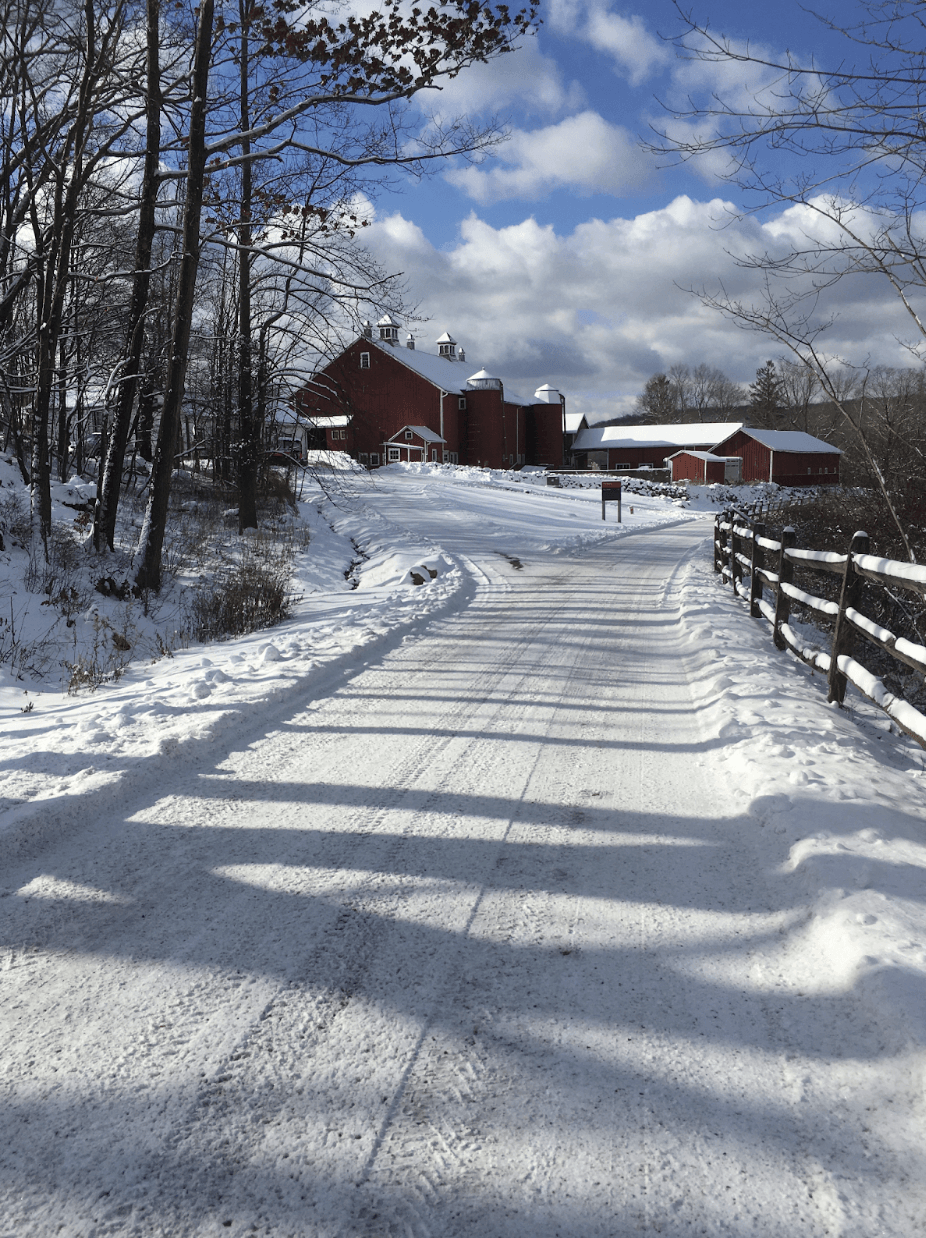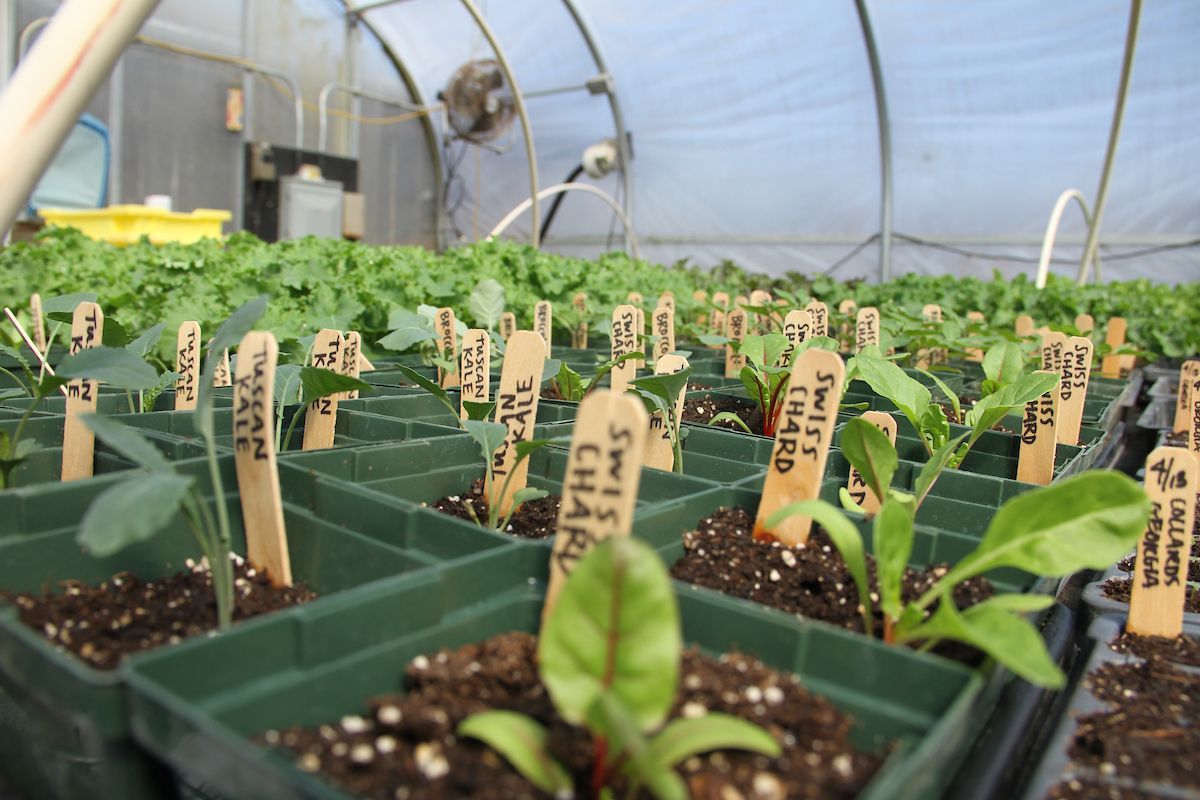
Deep winter is the time for rest and reflection on many farms. Here at Glynwood, the rhythms of the farm slow down as our crops and livestock shelter inside, protected from the wet, cold and windy weather that is winter in the Hudson Highlands. Our farmers spend much of the winter inside as well, where they are busy cleaning and organizing workspaces, repairing and replacing equipment, and finishing up their record-keeping in preparation for looking back over the successes and lessons learned last year and looking forward to making plans for the new growing season ahead.
Winter is also the time for the farm team to spend some time thinking together about the farm as a whole – a diverse working landscape that is home to our livestock and vegetable farms, ornamental lawns and gardens, historic homes and cottages, all connected by a patchwork of roads, field edges, thickets, woodlands, wetlands, rushing streams and placid lakes.
Being able to see this landscape as a whole, while keeping all the parts in mind as we make decisions, is a way of thinking that becomes increasingly important as the impacts of climate change on agriculture grow more intense. This way of thinking has proven to enhance the resilience of all kinds of businesses, but it is especially important for the success of nature-based businesses like farming. The bad news is that the increased weather variability associated with climate change is already disrupting farming in the Hudson Valley. The good news is that farmers can take advantage of a kind of whole landscape management – called Holistic Management - to cultivate resilience to disturbances and shocks of all kinds.
Holistic Management is based on a set of principles and practices that recognize the fundamental truth about life on our planet: Nature functions in wholes. This means that land managers will be rewarded for taking the time to step back and observe how the landscape functions as a whole, even though they may be responsible for tending just one part. Keeping the whole in mind can help our managers focus on addressing the root causes, rather than just the symptoms, of a poorly functioning system. It can also help our managers more clearly see opportunities for making changes that set off a cascade of benefits throughout the whole. Simply put, Holistic Management is a practical approach to real-world systems thinking.
Glynwood’s farm team uses Holistic Management to help us make decisions that support our organizational mission while also promoting a healthy ecosystem and a high quality of life – the cornerstones of regenerative food and farming. Some of these practices involve setting short and long-term goals that include the well-being of nature and using a set of questions designed to reveal how a change to one part of the land is likely to ripple through the rest of the whole.
Last winter, Glynwood’s land management team got to work adopting Holistic Management practices by working together to create a holistic land management goal. This three-part goal describes the quality of worklife desired by team members; the behaviors and processes that are needed to support this quality of life; and a vision of the land, people and greater community that will be needed to support this quality of life far into the future.
This winter, the Farm team will use our holistic land management goal to guide our decisions about how the farm can be designed and managed to best support Glynwood’s mission and values. We have been hard at work this past year learning more about our farm’s carbon footprint, identifying some key climate risks to our operations, and exploring some potential changes to our farm that offer both climate change mitigation and adaptation benefits.
Over the next three months, we will be making decisions about how and where to plant patches of fodder willow in our pastures, add perennial foods – like elderberry, paw paw and chestnut – to some of our annual vegetable fields, and reinforce natural drainage ways with simple one-rock step dams that will slow down and absorb surface water flows during heavy rains. We will think carefully about how well we function as a team and what changes we want to make to improve our work life quality. Finally, we will look beyond the farm to reflect on how our team impacts the health and well-being of the land, people and communities that we depend on to sustain the farm over the long term.
We are working to complete this planning just as winter turns to spring, so that we can shift our attention to helping this year’s apprentices settle in, starting vegetable crop seedlings for early summer planting, and welcoming a new group of piglets, chicks and poults to life at Glynwood. This year, we will begin the new growing season with more clarity and confidence that the decisions we make will move the whole that is Glynwood towards a healthy and regenerative future.

